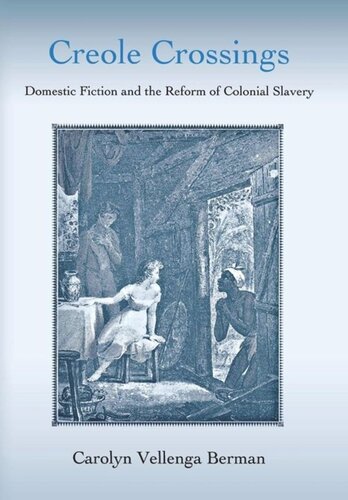

Most ebook files are in PDF format, so you can easily read them using various software such as Foxit Reader or directly on the Google Chrome browser.
Some ebook files are released by publishers in other formats such as .awz, .mobi, .epub, .fb2, etc. You may need to install specific software to read these formats on mobile/PC, such as Calibre.
Please read the tutorial at this link: https://ebookbell.com/faq
We offer FREE conversion to the popular formats you request; however, this may take some time. Therefore, right after payment, please email us, and we will try to provide the service as quickly as possible.
For some exceptional file formats or broken links (if any), please refrain from opening any disputes. Instead, email us first, and we will try to assist within a maximum of 6 hours.
EbookBell Team

0.0
0 reviewsThe character of the Creole woman—the descendant of settlers or slaves brought up on the colonial frontier—is a familiar one in nineteenth-century French, British, and American literature. In Creole Crossings, Carolyn Vellenga Berman examines the use of this recurring figure in such canonical novels as Jane Eyre, Uncle Tom's Cabin, and Indiana, as well as in the antislavery discourse of the period. "Creole" in its etymological sense means "brought up domestically," and Berman shows how the campaign to reform slavery in the colonies converged with literary depictions of family life. Illuminating a literary genealogy that crosses political, familial, and linguistic lines, Creole Crossings reveals how racial, sexual, and moral boundaries continually shifted as the century's writers reflected on the realities of slavery, empire, and the home front. Berman offers compelling readings of the "domestic fiction" of Honoré de Balzac, Charlotte Brontë, Maria Edgeworth, Harriet Jacobs, George Sand, Harriet Beecher Stowe, and others, alongside travel narratives, parliamentary reports, medical texts, journalism, and encyclopedias. Focusing on a neglected social classification in both fiction and nonfiction, Creole Crossings establishes the crucial importance of the Creole character as a marker of sexual norms and national belonging.